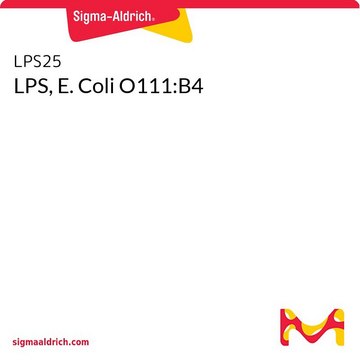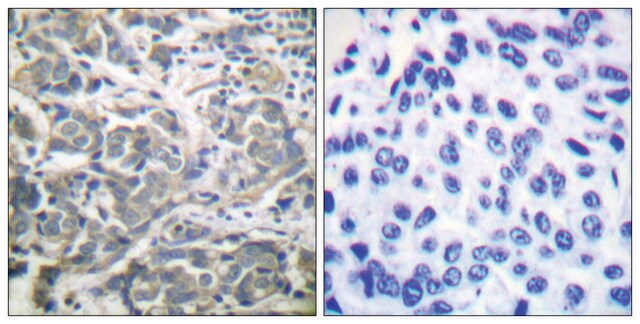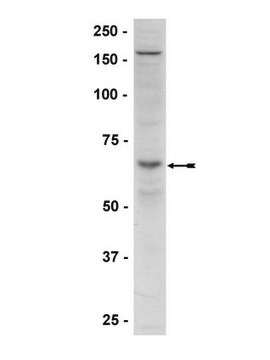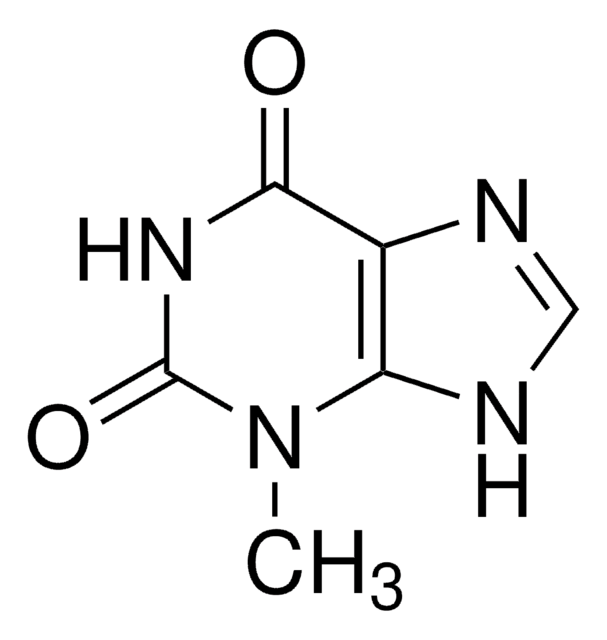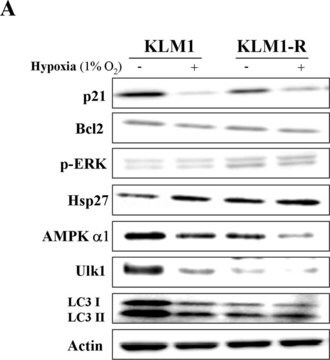ZRB1213
Anti-phos-AMPKα (Thr172) Antibody, clone 5J23 , ZooMAb® Rabbit Monoclonal

recombinant, expressed in HEK 293 cells
Sinonimo/i:
5′-AMP-activated protein kinase catalytic subunit alpha-2, ACACA kinase, AMPK subunit alpha-2, Acetyl-CoA carboxylase kinase, EC: 2.7.11.1, HMGCR kinase, Hydroxymethylglutaryl-CoA reductase kinase
About This Item
Prodotti consigliati
Origine biologica
rabbit (recombinant)
Livello qualitativo
Ricombinante
expressed in HEK 293 cells
Coniugato
unconjugated
Forma dell’anticorpo
purified antibody
Tipo di anticorpo
primary antibodies
Clone
5J23, recombinant monoclonal
Nome Commerciale
ZooMAb® learn more
Stato
lyophilized
PM
calculated mol wt 62.32 kDa
observed mol wt ~62 kDa
Reattività contro le specie
human, mouse
Confezionamento
antibody small pack of 25 μL
Caratteristiche più verdi
Waste Prevention
Designing Safer Chemicals
Design for Energy Efficiency
Learn more about the Principles of Green Chemistry.
Convalida avanzata
recombinant expression
Learn more about Antibody Enhanced Validation
sustainability
Greener Alternative Product
tecniche
immunocytochemistry: suitable
immunohistochemistry: suitable
inhibition assay: suitable (peptide)
western blot: suitable
Isotipo
IgG
N° accesso UniProt
Categoria alternativa più verde
Condizioni di spedizione
ambient
Temperatura di conservazione
2-8°C
modifica post-traduzionali bersaglio
phosphorylation (pThr172)
Informazioni sul gene
human ... PRKAA2(5563)
Descrizione generale
Each ZooMAb antibody is manufactured using our proprietary recombinant expression system, purified to homogeneity, and precisely dispensed to produce robust and highly reproducible lot-to-lot consistency. Only top-performing clones are released for use by researchers. Each antibody is validated for high specificity and affinity across multiple applications, including its most commonly used application. ZooMAb antibodies are reliably available and ready to ship when you need them.
Learn more about ZooMAb here.
Specificità
Immunogeno
Applicazioni
Immunohistochemistry (Paraffin) Analysis: A 1:100 dilution from a representative lot detected phospho-AMPK (Thr172) in human skin and human testis tissue sections.
Immunocytochemistry Analysis: A 1:1,000 dilution from a representative lot detected phospho-AMPK (Thr172) in HeLa, A431, HUVEC, and NIH 3T3 cells.
Note: Actual optimal working dilutions must be determined by end user as specimens and experimental conditions may vary.
Descrizione del bersaglio
Stato fisico
Ricostituzione
Stoccaggio e stabilità
Note legali
Esclusione di responsabilità
Non trovi il prodotto giusto?
Prova il nostro Motore di ricerca dei prodotti.
Codice della classe di stoccaggio
11 - Combustible Solids
Classe di pericolosità dell'acqua (WGK)
WGK 1
Punto d’infiammabilità (°F)
Not applicable
Punto d’infiammabilità (°C)
Not applicable
Scegli una delle versioni più recenti:
Certificati d'analisi (COA)
Non trovi la versione di tuo interesse?
Se hai bisogno di una versione specifica, puoi cercare il certificato tramite il numero di lotto.
Possiedi già questo prodotto?
I documenti relativi ai prodotti acquistati recentemente sono disponibili nell’Archivio dei documenti.
Il team dei nostri ricercatori vanta grande esperienza in tutte le aree della ricerca quali Life Science, scienza dei materiali, sintesi chimica, cromatografia, discipline analitiche, ecc..
Contatta l'Assistenza Tecnica.